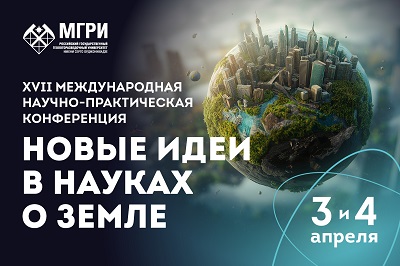Features of mechanical pulse treatment of filters and near-filter zones of in-situ uranium leaching wells
https://doi.org/10.32454/0016-7762-2025-67-1-105-113
EDN: UMOEDU
Abstract
Introduction. Uranium mining by in-situ leaching (ISL) requires the use of special methods for developing wells and maintaining their design productivity (flow rate) both at the construction stage and during operation by carrying out repair and restoration work (R&R). The operation of process wells is accompanied by mechanical, chemical or gas colmatation of filters and near-filter zones (PFZ). In this case, various methods are used to remove the colmatant, which complicates under ground leaching, among which are: mechanical, chemical, physical and combined. This article is devoted to the assessment of the efficiency of using three types of mechanical pulse treatment of uranium SPV process wells at production facilities during their development and repair: pneumatic pulse treatment, using hydrovibrators and pneumatic swabbing. Objective. To provide conditions for increasing the operating period of a production well with productivity at the level of design values. Materials and methods. In this paper, the problem is solved by analyzing the physical nature of the processes occurring, characteristic of the three types of mechanical pulse processing of filters being compared and implemented at enterprises and filter zones, as well as a comparison of the effectiveness of the results of their action, the criterion for which was the volume of working solutions containing a useful product extracted to the surface. Results. The studies have shown that the most effective of the mechanical pulse methods under consideration is the processing of filters and PFZ using hydrovibrators. Conclusion. The use of new technical repair means leads to an increase in the efficiency of ore body development.
About the Authors
A. G. IvanovRussian Federation
Alexander G. Ivanov — Cand. Sci. (Tech.), Chief Specialist
33, Kashirskoe highway, Moscow 115409
Yu. A. Arsentiev
Russian Federation
Yuri A. Arsentiev — Cand. Sci. (Tech.), Associate Professor
23, Miklukho-Maklaya str., Moscow 117997
D. D. Orekhov
Russian Federation
Danila D. Orekhov — student
23, Miklukho-Maklaya str., Moscow 117997
R. I. Gavrilov
Russian Federation
Ruslan I. Gavrilov — student
23, Miklukho-Maklaya str., Moscow 117997
References
1. Volnitskaya E.M. Development and implementation of low-frequency pulse-wave technology for intensification of inflows in hydrogeological wells: Abstract of dis. for a Ph.D. in Engineering Sciences. All-Union Scientific and Design Institute for Explosive Methods of Geophysical Prospecting, 1990. 19 p. (In Russ.).
2. Volnitskaya E.M., Belikov M.S., Bogdanov V.S., Lysov V.N., Prilepsky V.P., Safonov V.I. Method of processing and cleaning a well and the near-wellbore zone of a formation. A.s. 1802070 USSR. MKI E 21 C 45/00 — Published 15.03.03. Bulletin No. 10 (In Russ.).
3. Uranium geotechnology (Russian experience): monograph. Ed. I.N. Solodov, E.N. Kamnev. Moscow: “KDU” — “University book”, 2017. 576 p. (In Russ.).
4. Grikevich E.A. Hydraulics of water intake wells. Moscow: Nedra, 1986. 231 p. (In Russ.).
5. Ivanov A.G., Mikhailov A.N., Alekseev N.A., Ivanov D.A., Arsenyev Yu.A., Solovyov N.V., Nazarov A.P. Repair and restoration work to increase the productivity of technological wells. Exploration and protection of subsoil. 2020. No. 6. P. 52—56 (In Russ.).
6. Ivanov A.G., Mikhailov A.N., Alekseev N.A., Ivanov D.A., Arsenyev Yu.A., Soloviev N.V., Nazarov A.P. Methods and technical means for processing near-filter zones of technological wells. Exploration and protection of subsoil. 2020. No. 7. P. 40—44 (In Russ.).
7. Serdyuk N.I. Cavitation methods for decolmatation of the filter area of bored wells. Moscow: JSC “VNIIOENG”, 2004. 176 p. (In Russ.).
Review
For citations:
Ivanov A.G., Arsentiev Yu.A., Orekhov D.D., Gavrilov R.I. Features of mechanical pulse treatment of filters and near-filter zones of in-situ uranium leaching wells. Proceedings of higher educational establishments. Geology and Exploration. 2025;67(1):105-113. (In Russ.) https://doi.org/10.32454/0016-7762-2025-67-1-105-113. EDN: UMOEDU









































